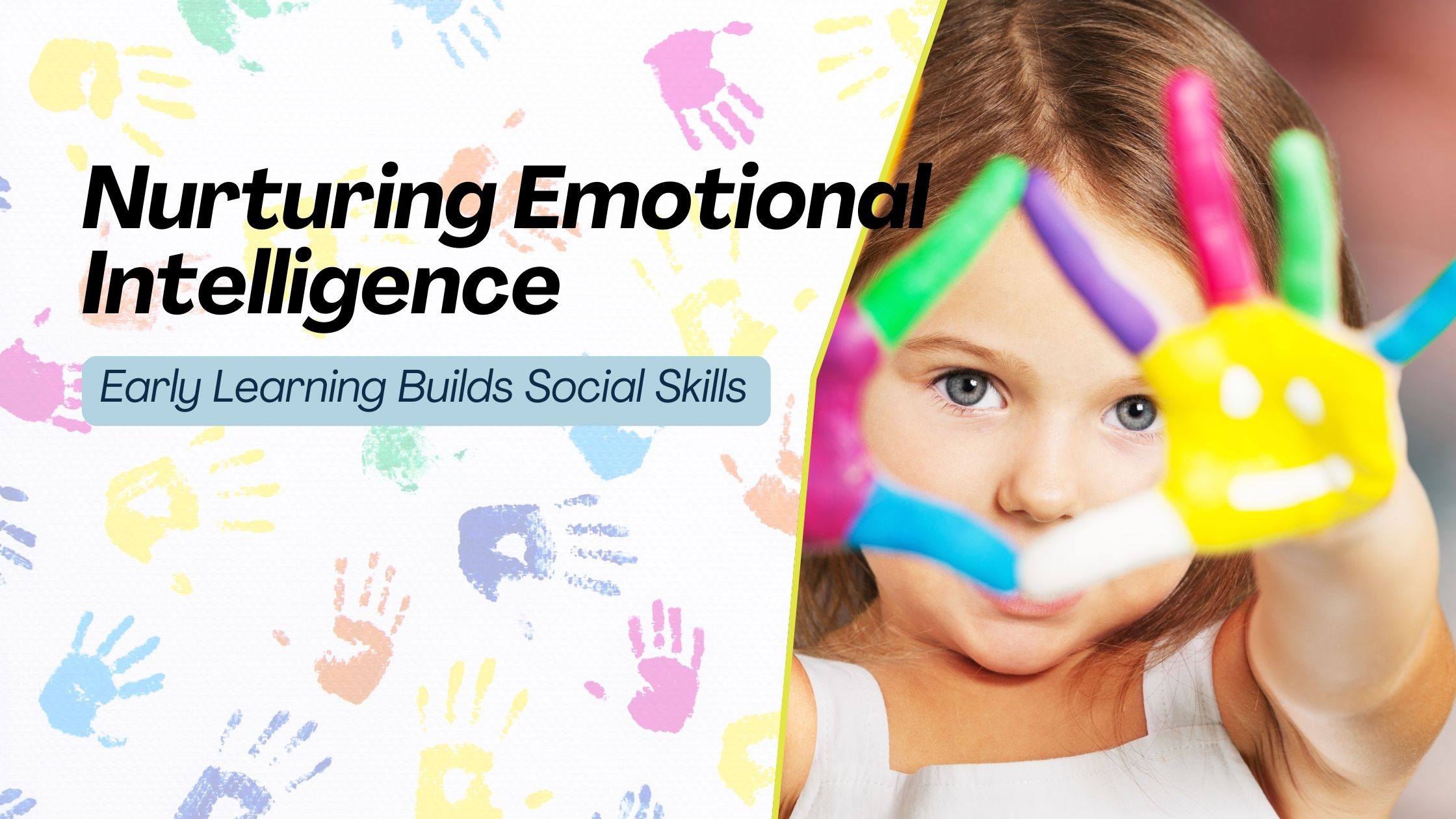
Nurturing Emotional Intelligence in Childcare: How Early Learning Builds Social Skills
Working parents often feel a swell of pride when they see their child share a toy, comfort a sad friend, or proudly use their manners. These moments are more than just sweet; they are signs of growing emotional intelligence. Emotional intelligence is the ability to recognise, understand and manage our own feelings while responding to the emotions of others. It is a skill that begins developing surprisingly early in life.
From birth through the preschool years, children experience rapid growth in their social and emotional abilities. Research shows that early childhood is a critical window for building the foundations of empathy, self-regulation and positive relationships . Quality childcare provides the ideal environment for these essential skills to take root and flourish.
Why Emotional Intelligence Matters
Emotional intelligence, plays a major role in a child’s future wellbeing, academic success and ability to form healthy relationships. Studies in Australia highlight that children with stronger emotional and social skills in the early years are more likely to thrive at school and enjoy better mental health as they grow .
By contrast, children who struggle to regulate emotions or get along with others often face challenges in the classroom and beyond. Helping children understand and manage feelings during the early years sets them up for resilience and success later in life.
How Childcare Nurtures Emotional Growth
At Kids College, we see every day as an opportunity to help children build emotional intelligence. In a childcare setting, children encounter countless chances to practise social skills and learn empathy:
- Sharing and taking turns: Everyday activities like building with blocks or playing a group game provide natural opportunities for children to negotiate, cooperate and wait patiently.
- Recognising emotions: Educators guide children to identify feelings in themselves and others, helping them learn the language of emotions. For example, saying, “I can see you’re frustrated the puzzle piece won’t fit” validates the feeling and models awareness.
- Resolving conflicts: When disagreements arise, educators gently coach children through solutions, teaching them positive ways to manage conflict.
These small but meaningful experiences all contribute to what educators call social competence the ability to interact with others respectfully, with care and understanding .
The Role of Educators
Research emphasises that secure and positive relationships with trusted adults are essential for developing emotional skills . At Kids College, our educators intentionally model empathy, patience and kindness. We acknowledge children’s feelings, comfort them when they are upset, and celebrate their efforts.
These consistent, caring interactions provide children with a safe base from which to explore the world. They learn not only how to name their emotions, but also how to regulate them. Over time, children begin to mirror these behaviours offering a hug to a sad friend, using words instead of tears, or celebrating a peer’s achievement.
A Lasting Impact
The social and emotional learning that takes place in early childhood education has lifelong benefits. The Australian Institute of Family Studies notes that early social-emotional wellbeing is strongly linked to higher academic achievement and better mental health outcomes in later years .
In short, the skills your child practises at childcare today recognising feelings, taking turns, showing kindness are the very skills that will help them succeed in school, the workplace, and their future relationships.
Supporting Perth Families
For working parents in Perth, choosing childcare is not only about practical support. It is also about ensuring your child has the best possible start in life. At Kids College, we are proud to provide an environment where children feel safe, loved and empowered to grow into kind, confident people.
When your child learns to share, cooperate and express their emotions here, you can feel reassured knowing they are developing the social and emotional skills that will carry them well into the future.
References
- ACECQA – National Quality Standard, Relationships with Children
- Australian Institute of Family Studies – Social and emotional wellbeing in early childhood
- Early Childhood Australia – Supporting children’s social and emotional learning
- Department of Education (Australian Government) – Early Years Learning Framework
